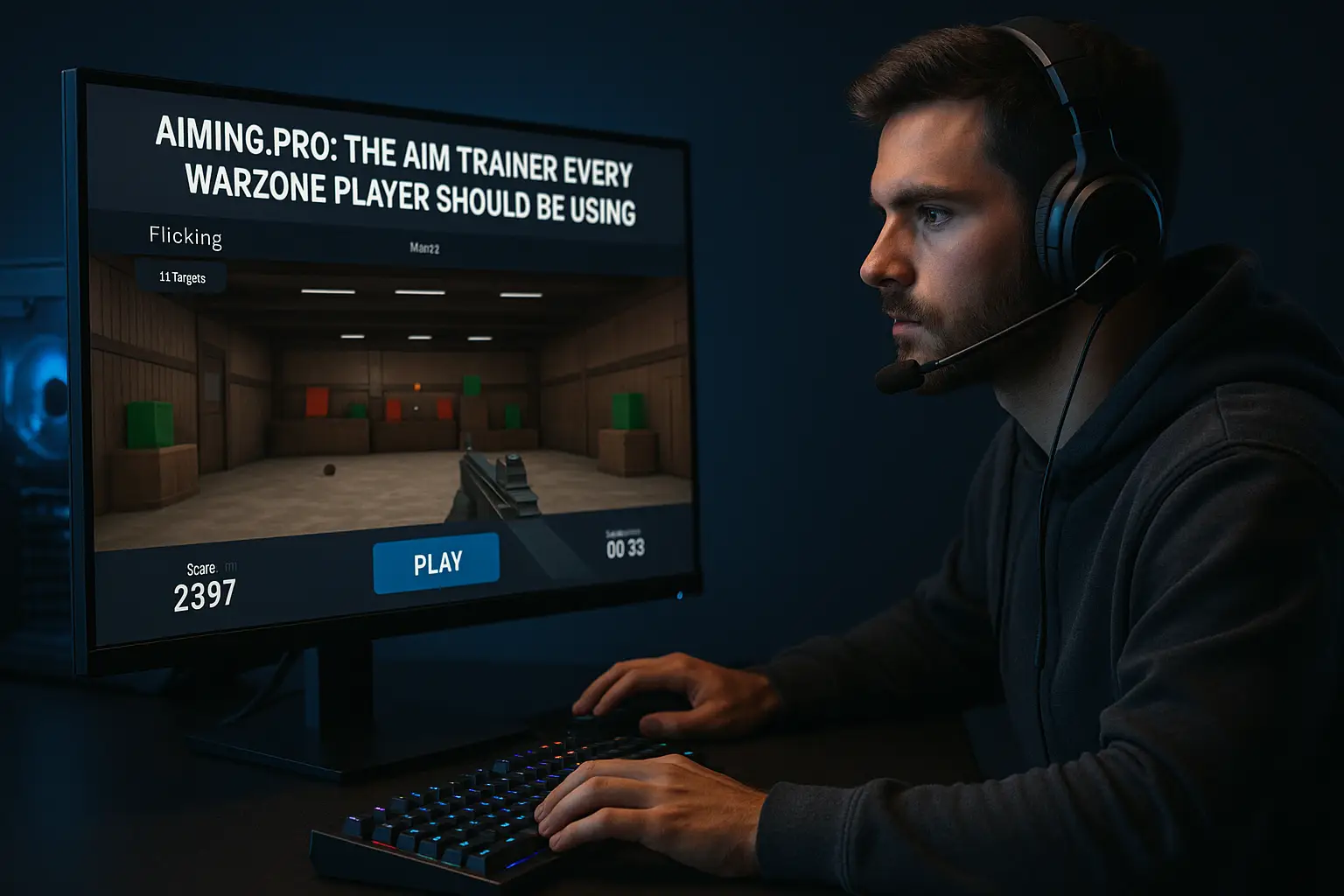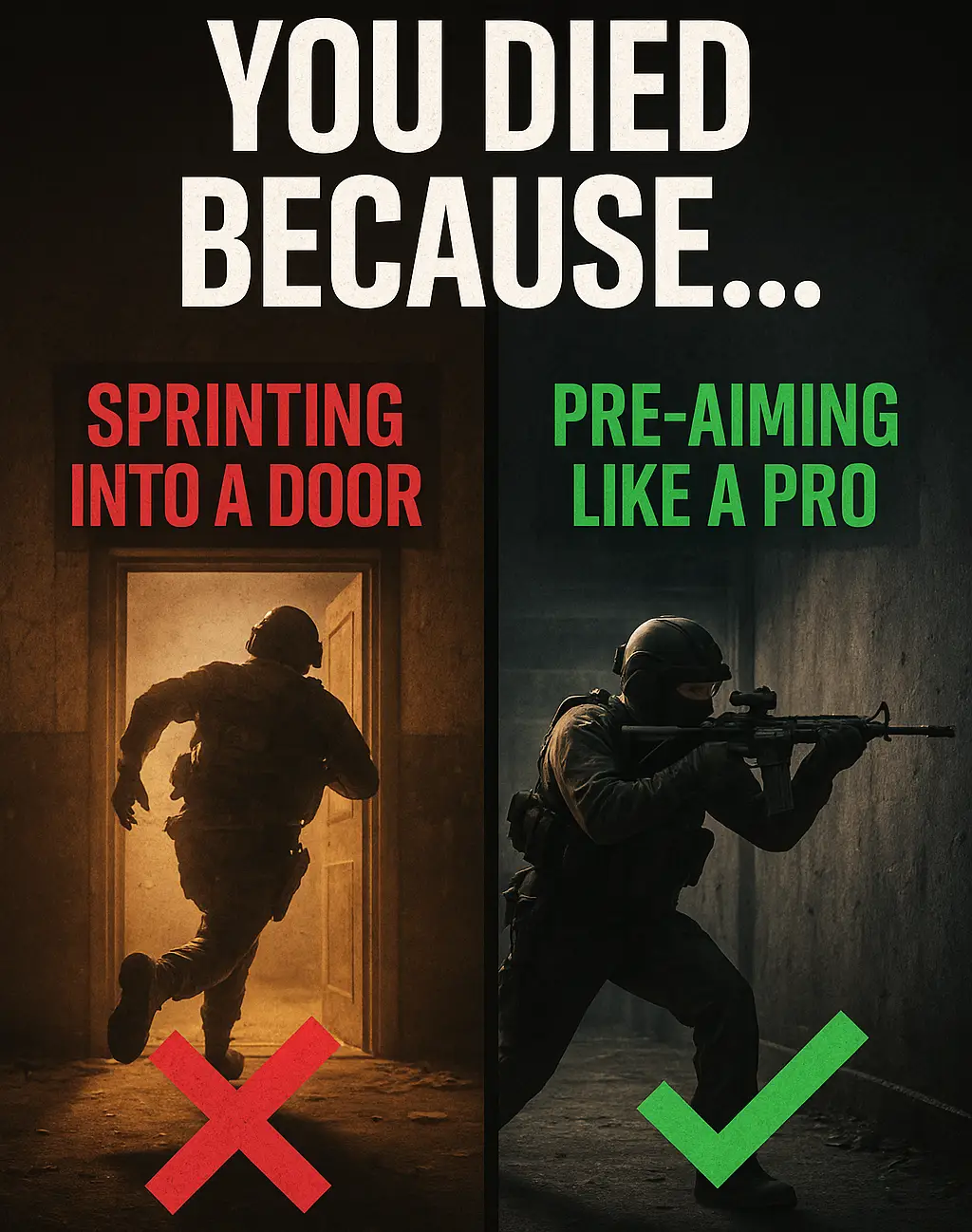
5 Tips to Master the Warzone COD Tactical Layout
Why Every Pro Player Uses the Tactical Layout in Warzone COD What Is the Tactical Layout and How Does It
Call of Duty has become more than a way to pass the time. I unexpectedly discovered an effective outlet for stress in a game many view as a competitive shooting experience. Through personal experience, I’ve learned that the game offers a powerful way to unwind after a tough day. In this article, I’ll share how Call of Duty became my go-to stress reliever and explore the aspects of the game that help me manage anxiety and frustration.
My ride with Call of Duty began when I needed an escape at 16. I was experiencing a period when stress felt overwhelming, and I was searching for an activity that could offer a break without piling on extra pressure. Call of Duty provided a unique blend of competition, strategy, and tangible progression that helped push away my everyday concerns. The fast-paced action and realistic sound effects gave me something to focus on, making it easier to step away from a cycle of persistent worry.
It isn’t just about eliminating foes. It’s about testing your nerve and honing collaborative skills. As I immersed myself in its world, I realized that the challenges in the game mirrored real-life pressures. Overcoming obstacles during gameplay gave me a sense of accomplishment, which in turn helped me cope better with daily challenges. I stumbled upon the idea that letting go of what I could not control in life became more manageable when I could master difficult in-game situations. This revelation cemented Call of Duty as more than an adrenaline rush—it offered a structured way to calm the mind and reset one’s focus.
There was a turning point when I decided to take Call of Duty seriously. I had heard many comments about its competitive mode, which was both exhilarating and demanding. Initially, I was cautious about investing my time since I worried that the intensity might add to my stress rather than take it away. However, I soon noticed that the game’s structure helped me regroup and focus on what needed to be done.
Every match felt like a short lesson in concentration and resilience. I had to prioritize tactics, communicate clearly with teammates, and plan my moves carefully when playing. This process enabled me to leave behind the chaos of everyday life and focus on clear, measurable objectives. It also served as a mini training session for life, reinforcing focus, strategic thought, and the ability to reset after setbacks.
Several features of Call of Duty stand out because they help me manage stress effectively. Among the most valuable are the eye-catching gameplay and the meticulously detailed environments. The game’s graphics, sound, and level design create an atmosphere where I can temporarily disconnect from life and enjoy a break from routine challenges.
I appreciate the way the game encourages fast and strategic thinking. Each level offers different challenges, requiring quick decisions under pressure. It isn’t just about eliminating foes. It’s about building resilience, learning teamwork, and enjoying a well-rounded challenge. The experience goes deeper than simply pressing a trigger; it involves planning, adjustment, and steady personal improvement.
These elements unite to foster a gaming experience that offers a healthy escape from stress. Players can immerse themselves in a world where they can challenge their skills, engage in dynamic gameplay, and unwind from the pressures of daily life. This environment encourages mental clarity and emotional release by balancing focus, strategy, and enjoyment.
You might wonder how I manage to keep my gaming stress-relieving rather than stressful. It comes down to a few simple strategies that I have honed over time. First, I set aside dedicated gaming time to remain a positive part of my day. By planning my sessions, I avoid letting the game take over everything, creating boundaries that maintain balance in my life.

To maximize the stress-relieving benefits of gaming, I always prepare my setup and ensure my space is comfortable and free of distractions. I take brief meditative pauses during long play sessions, which help me reset my focus and maintain a mindful awareness. These short breaks remind me that while gaming provides a welcome escape, balance is vital for overall well-being.
Adopting Call of Duty as a stress relief tool did not come without its challenges. In the beginning, I sometimes felt overwhelmed by the rapid pace of the game, and the intensity of combat occasionally led to increased frustration rather than relief. I had to learn that understanding and respecting my limits was important. Sometimes, the rush of the game would trigger emotions that reminded me of everyday pressures, making it necessary to adjust my approach.
One significant challenge was learning to accept losses. Early on, every defeat felt like a setback that added to my daily stress. I had to realize that, in gaming—as in life—success doesn’t come with every try. I eventually learned to treat each match as an opportunity to learn instead of swinging between winning and losing. With time, I saw that losses were stepping stones toward improving my skills. This shift in perspective improved my game and helped me handle challenges in other areas of my life.
Another hurdle was balancing gaming time with other responsibilities. Sometimes, I got too absorbed in a match and lost track of time, impacting my sleep and personal tasks. I understood that although gaming gave me a mental break, it had to be managed to never intrude on my routine. To address this, I set timers and strictly limited my play sessions. Consistently scheduling my gaming time helped preserve balance in my daily life.
One of my most significant adjustments was learning to manage my time effectively. Recognizing when to put down the controller and step away from the screen was essential. I planned out my day and allocated specific time slots for gaming, which allowed me to enjoy Call of Duty without sacrificing other responsibilities. This discipline improved my productivity, helped me maintain healthy routines, and allowed me to appreciate the moments spent playing.
Every match does not end in victory; coming to terms with that fact has been liberating. I remind myself that each loss offers a valuable lesson. This change in mindset helped me lower the pressure to win every time and allowed me to relish the game on my terms. I picked up new insights, adjusted my tactics, and grew more confident in my abilities with every defeat. Embracing setbacks as part of my learning process made the overall experience more rewarding and less stressful.
As I grew more comfortable using gaming as a tool for stress relief, I began to look into ways to improve my experience. I experimented with advanced settings that improved my overall comfort during gameplay. Adjusting the sensitivity of the controls and the visual effects allowed me to find a balance that suited my style and mood. I spent considerable time personalizing these options because I wanted every component of the game to contribute positively to my relaxation and performance.
I also explored community resources, including online forums and guides, which offered insights into optimizing settings for a better gaming experience. The shared knowledge from other players helped me tweak my gameplay to suit my personal needs. I leaned into customizable options that allowed me to lower some of the more intense audio and visual effects. These settings boosted my in-game performance and ensured a smoother transition from virtual battles to everyday life.
Other advanced techniques involve setting small, personal challenges within the game. Establishing self-imposed goals replaced the constant pressure to win. I found immense satisfaction in beating my records and gradually improving my stats, which turned competitiveness into a personal benchmark for success rather than a pure head-to-head contest. This approach lessened the stress of competitive play while offering a fun and engaging objective.
Moreover, I experimented with different game modes. For instance, I alternated between fast-paced multiplayer matches and slower, tactical missions. This variation helped adjust my adrenaline levels and ensured that each gaming session contributed positively to my overall well-being. Mixing game modes allowed me to appreciate different facets of Call of Duty, each offering its own set of rewards and lessons. This adaptable strategy has helped me manage stress while pushing me to exceed my expectations.
Question: How does playing Call of Duty help reduce stress?
Answer: Playing Call of Duty shifts my focus from everyday worries to clear, in-game challenges. The need to plan strategies and react to fast-changing situations keeps my mind engaged and interrupts negative thought cycles.
Question: Is it possible to overdo gaming as a way to de-stress?
Answer: Yes, it is essential to maintain balance. I set strict boundaries on my gaming time to ensure it does not interfere with sleep, work, or personal relationships.
Question: Can the competitive nature of the game increase stress?
Answer: Although competition is a core game aspect, I focus on personal progress rather than just winning or losing. Accepting defeat as part of the learning process helps keep stress levels low.
Question: What if I find the game’s intensity overwhelming at first?
Answer: I discovered that starting with shorter sessions and gradually increasing play time helped me adjust to the intensity. Tweaking game settings to match your comfort level can make the experience more enjoyable.
Bottom line: Call of Duty is more than just a competitive shooter; it has become a reliable tool for managing stress. The game’s engaging challenges and immersive environment offer a healthy distraction from everyday pressures. By focusing on personal progress rather than winning, I have transformed each gaming session into a positive experience that makes me feel more balanced and relaxed.
Through a careful approach involving time management, setting achievable goals, and adjusting gameplay settings, I have crafted a routine where Call of Duty entertains me and provides genuine relief from stress. I continue experimenting with new techniques and strategies to improve my experience, blending intense moments with calm intervals. This balance has allowed me to navigate virtual and real-world challenges more effectively.
By structuring my sessions and incorporating mindfulness practices, I have blended entertainment with real-life benefits. Gamers, including myself, find creative ways to balance passion with everyday responsibilities, and this approach has helped me handle unexpected obstacles outside the gaming world. It reinforces that stress relief can come from even the most unexpected sources.
The game has taught me valuable lessons about patience, persistence, and the importance of small victories. As my journey progresses, I remain open to learning new ways to incorporate gaming into a healthy lifestyle. Whether setting new personal challenges or adjusting my approach based on my mood, my relationship with Call of Duty continues to evolve to support my overall well-being.
In the hustle of daily life, finding the right blend of challenge and relaxation can be difficult. Call of Duty has proven to be a surprising solution, combining fun entertainment with practical methods for reducing stress. It serves as a reminder that innovative approaches to leisure can yield real-life benefits, making it easier to take on whatever comes next.
Every match, win or lose, reminds me that life is full of opportunities to grow and learn. By embracing the ups and downs, I have learned to appreciate the journey and find solace even in fast-paced games. This balanced perspective has allowed me to maintain a calm mindset while pushing my limits and enjoying every moment.
Ultimately, I see Call of Duty as more than just a game—it is a tool that challenges me, teaches me, and provides moments of deep focus. My experience has shown that even competitive gaming can be a path to relaxation and personal growth with the right balance. For anyone seeking a unique way to de-stress, dedicating quality time to a favorite game can bring unexpected rewards and lasting benefits.
Thanks for reading Improving Your Aim: How Call Of Duty Became My Go-To Stress Reliever. If you liked this article, read Beginner’s Guide To Call Of Duty 6: Tips For First-Time Players.
Ask Questions: If you have any questions, leave them in the comments below.
Happy Gaming!

Why Every Pro Player Uses the Tactical Layout in Warzone COD What Is the Tactical Layout and How Does It

Best Aim Trainer for Warzone (Aiming.pro): Why Every Player Should Be Using It If you’re looking for the Best Aim

Warzone Sprint-to-Fire Delay Explained (Top 5 Secrets to Win More Fights in 2025) Field Brief: Understanding Warzone Sprint-to-Fire Delay “The